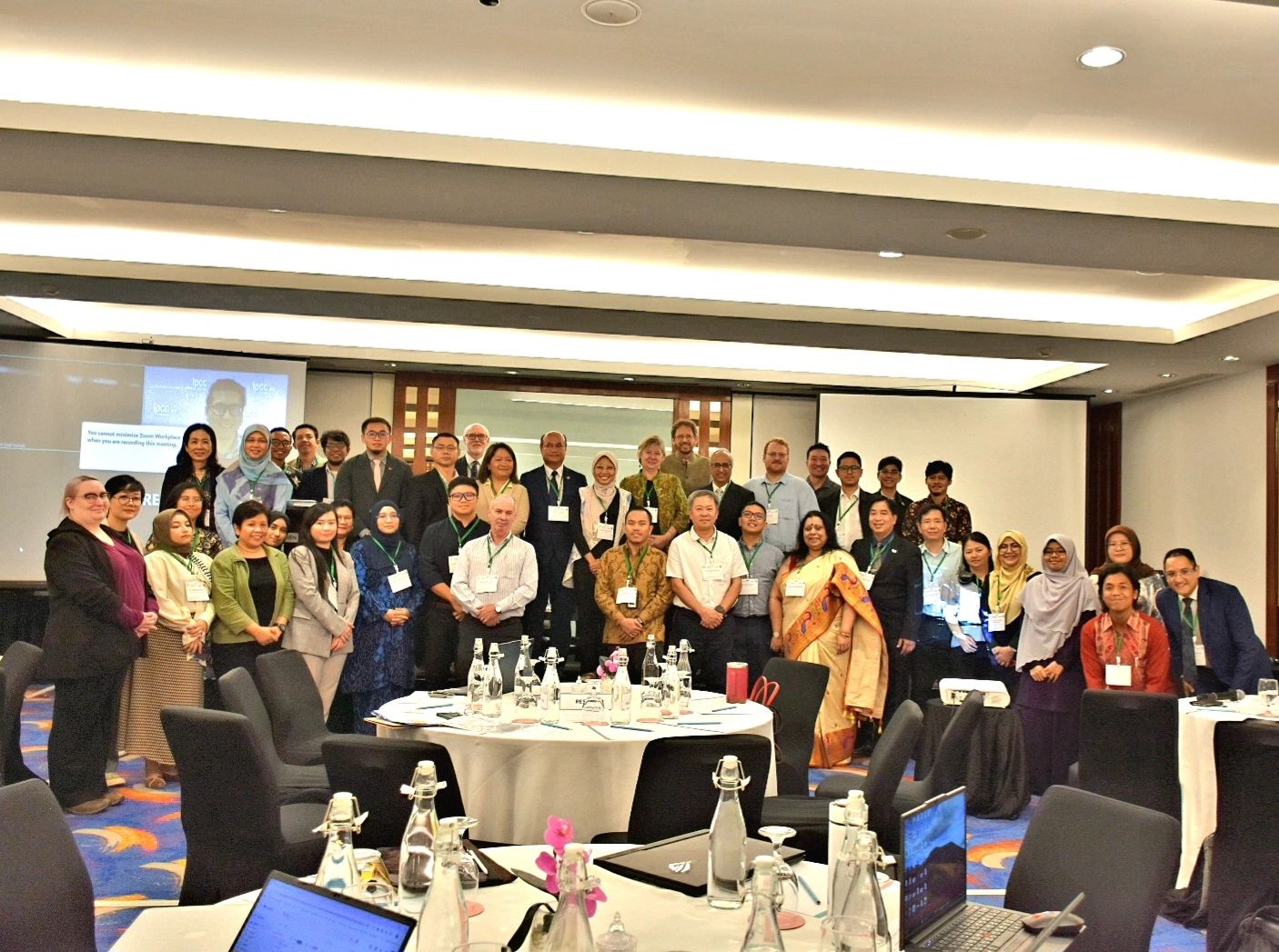Towards Socially Inclusive Climate Resilience in ASEAN Cities: Highlights from the launch of CLARE-ASEAN
/
The research programme “Supporting Socially Inclusive Climate Adaptation & Resilience (CLARE) in ASEAN” or “CLARE-ASEAN” was officially launched on June 4 with an inspiring inception workshop in Jakarta, Indonesia. The launch of CLARE-ASEAN represents a key step towards fostering socially inclusive urban resilience to climate change in the ASEAN region.
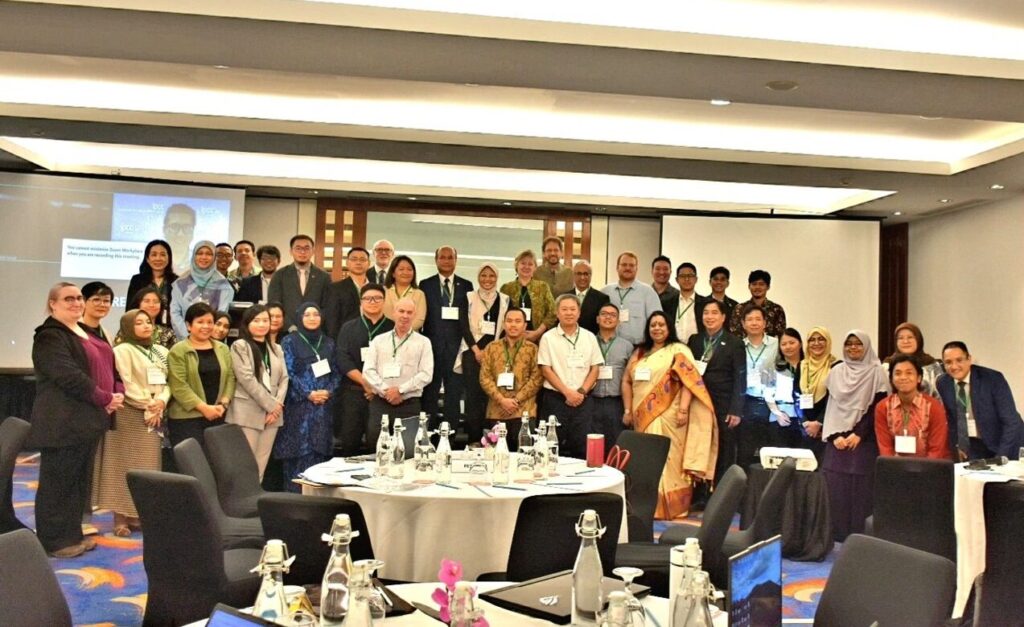
About CLARE-ASEAN
CLARE-ASEAN is a two-year research programme focused on urban climate resilience in ODA-eligible ASEAN member states, under the CLimate Adaptation and REsilience (CLARE) research framework. It is run by the Asian Institute of Technology (AIT), working closely with the ASEAN Secretariat, and is mainly funded by the UK Foreign, Commonwealth and Development Office (which provides 90% of the funding) together with the International Development Research Centre (IDRC).
The ASEAN region is highly vulnerable to the impacts of climate change, as detailed in the ASEAN State of Climate Change Report. Already, the region is experiencing significant climate impacts causing economic, environmental, and social damage. Strengthening resilience and adaptation in ASEAN is critical, with climate impacts threatening to undermine decades of development progress. With more than half the region’s population living in cities, and urbanization accelerating, building urban climate resilience is more urgent than ever.
CLARE-ASEAN directly addresses these challenges, working hand-in-hand with the ASEAN Secretariat and the ASEAN Working Group on Climate Change to ensure research meets local priorities and delivers real impact.
Building on the climate leadership of the United Kingdom and Canada in the ASEAN region, CLARE-ASEAN will drive multi-country collaboration and knowledge sharing through four research projects led by local institutions in lower-income economies in the region. The projects were selected through an open call for proposals. They will work to strengthen urban climate resilience in the ASEAN region, focusing on natured-based solutions, grassroots experiments, and urban heat and housing. Each of these projects will generate evidence and scalable solutions through a process of co-creation with local stakeholders.
The CLARE-ASEAN proposal has been endorsed by key ASEAN bodies, including the ASEAN Working Group on Climate Change (AWGCC), the ASEAN Senior Officials on Environment (ASOEN), and the Committee of Permanent Representatives to ASEAN (CPR). A Project Steering Committee was established to guide the collaboration.
Highlights from the inception workshop
CLARE-ASEAN was officially launched at an inception workshop organized by the Asian Institute of Technology (AIT) in coordination with FCDO and IDRC, with support from the ASEAN Secretariat’s Environment Division. The workshop introduced the CLARE-ASEAN project, explored its alignment with ASEAN’s climate priorities, and solicited feedback and guidance from stakeholders.
High-level engagement
The inception workshop was attended by representatives from ASEAN Member States (AMS), the UK Mission to ASEAN and Indonesia, the CLARE-ASEAN team, research consortium comprising of institutions across ASEAN, and selected institutions from the region. Participants had the opportunity to hear remarks from Dr. Vong Sok, Assistant Director of the ASEAN Secretariat, Environment Division and H.E. Sarah Tiffin, the UK Ambassador to ASEAN.
Dr. Vong Sok spoke to the need for research to be useful to society. He stressed that research should focus on the needs and priorities of ASEAN member states, including advancing gender equality and strengthening the climate resilience of vulnerable groups. He emphasized the need to engage stakeholders across sectors and connect research to policy, working with practitioners, the public sector, and government.
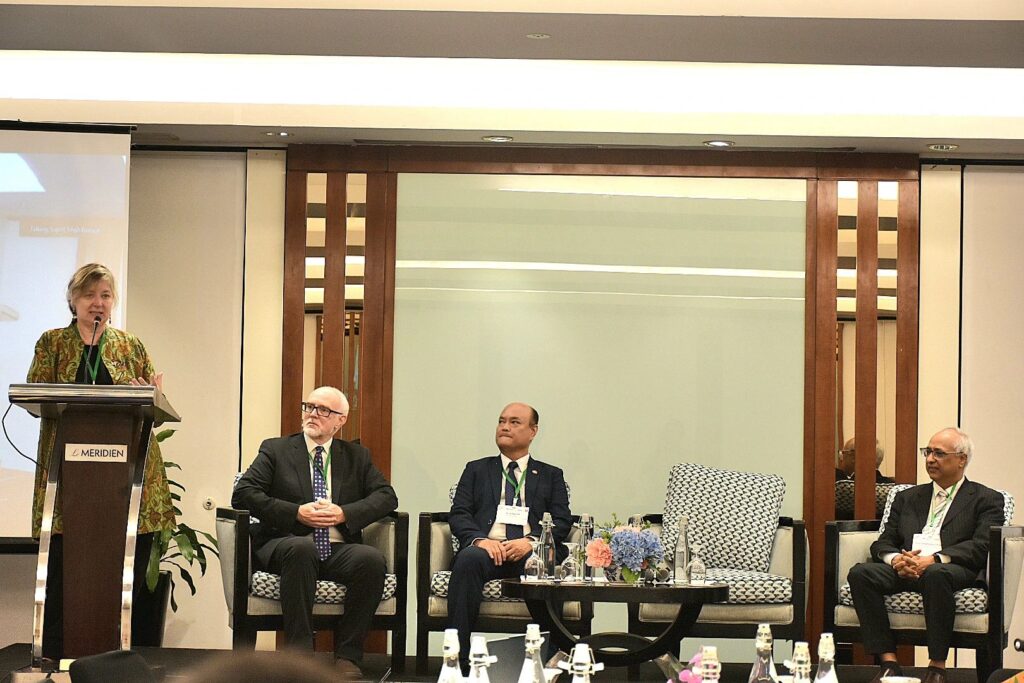
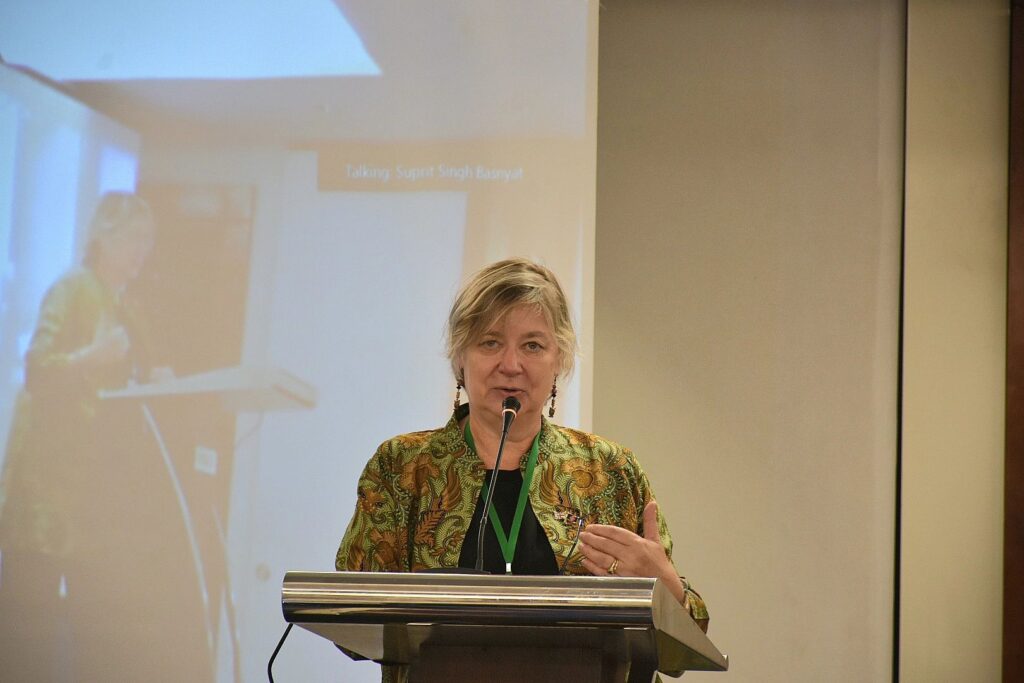
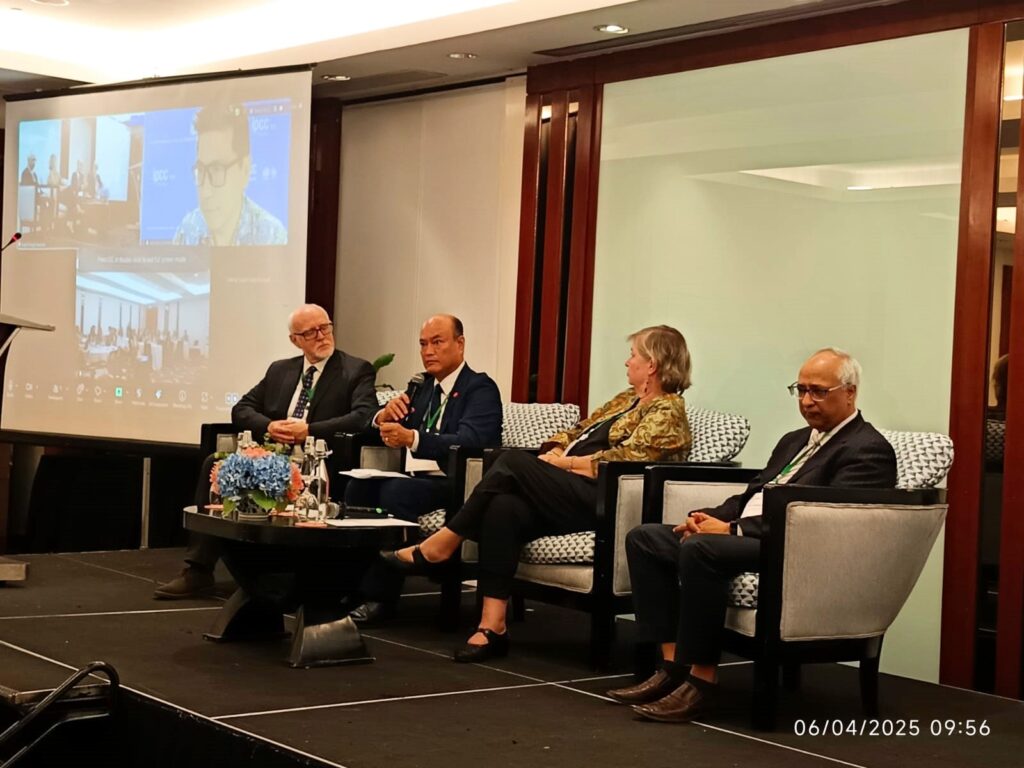
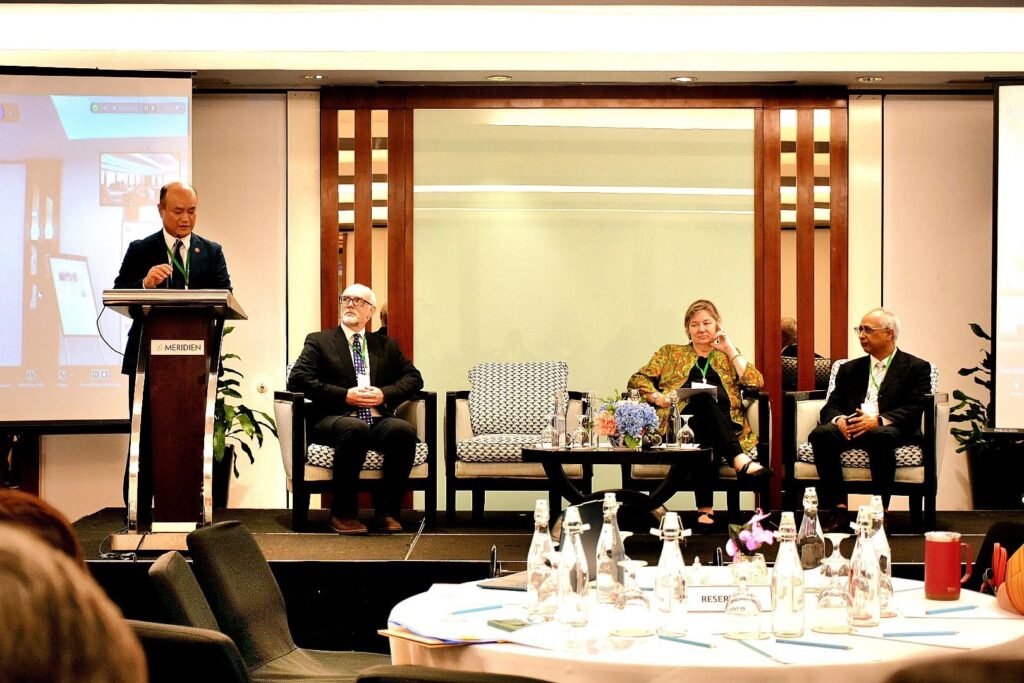
H.E. Sarah Tiffin spoke passionately about working in hand-in-hand with partners in ASEAN to drive climate adaptation in the region. She emphasised an approach rooted in listening to and addressing the real needs and priorities, ensuring that collaboration leads to meaningful, lasting impact. H.E. Tiffin highlighted the urgency of combining robust evidence with bold innovation to tackle climate challenges head-on, as well as the need for research that is active and practical, shaped by the realities on the ground and designed to inform and support effective policy action.
“Climate resilience is a pivotal investment for Southeast Asia’s future. The UK’s support through CLARE-ASEAN aims to help ASEAN Member States tackle climate risks at scale—by strengthening partnerships among researchers, policymakers, and local communities.” – UK Ambassador to ASEAN, Sarah Tiffin
The keynote speech on “Key Urban Climate Challenges in the Region” was delivered by Prof. Winston Chow, Professor of Urban Climate, Urban Institute of Singapore Management University, Co-Chair of IPCC Working Group II. He summarised how reports published over the IPCC’s sixth assessment cycle have provided a broad overview of risks in the ASEAN region, in particular the cascading and compounding effects of climate change and urbanization, and the impacts of extreme heat on human health. Prof. Chow highlighted opportunities for CLARE-ASEAN research teams to be involved in the IPCC process, particularly the forthcoming Special Report on Climate Change and Cities.
CLARE-ASEAN: Overview and Approaches
Members of the CLARE-ASEAN team, Prof. Shobhakar Dhakal and Prof. Paula Banerjee of AIT, provided an overview of the programme and its approaches. CLARE-ASEAN will support cooperation for urban resilience by addressing existing knowledge gaps related to climate resilient development, increased heat and extreme heat, and increased flooding and sea level rise. The programme promotes a ‘systems’ approach in response to these compounding risks, enables collaboration across sectors and governance levels, and invests in strengthening capacity for implementing climate policies. Profs. Dhakal and Banerjee described CLARE-ASEAN’s regionally- and impact-oriented approach and outlined key tasks for the new programme: contributing to advancing knowledge and policy, international collaboration and engagement, and building a community of researchers. CLARE-ASEAN will ensure research and evidence is presented and synthesized to directly respond to policy needs.
Responses and Impacts: Enhancing Urban Resilience to Climate Change in ASEAN
To ensure CLARE-ASEAN is well positioned to enhance urban resilience to climate change in the region, the initiative is supported by CLARE’s Research 4 Impact (R4I) Hub. Roy Bouwer presented on recent experience, as described in CLARE’s first working paper, which describes the approaches through which researchers are aiming to help build resilience, such as co-creation labs and citizen science. This was followed by a World Café of in-depth discussions between the research teams and representatives of the ASEAN Member States on questions of how to make research action-oriented and ensure policy relevance, and mechanisms through which impacts and engagement can be maximized.
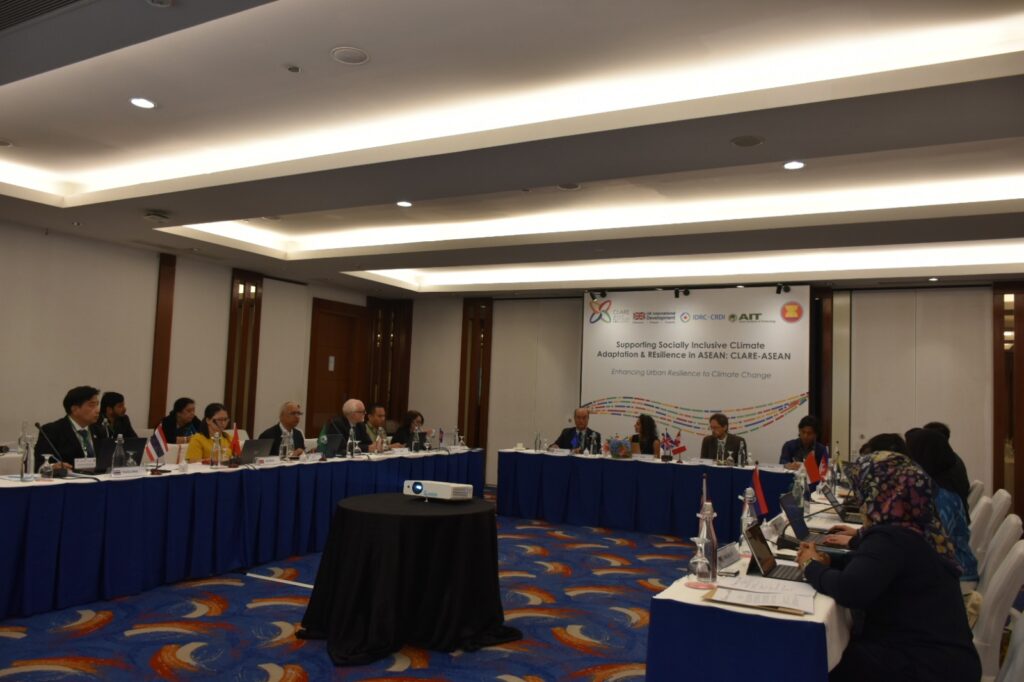
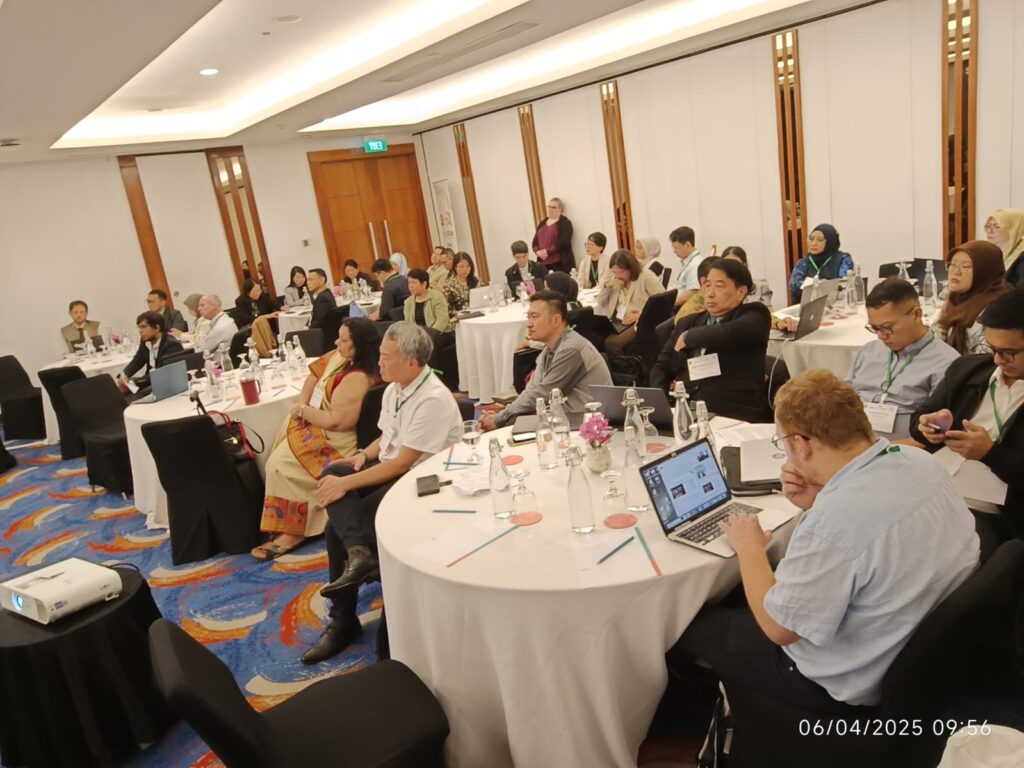
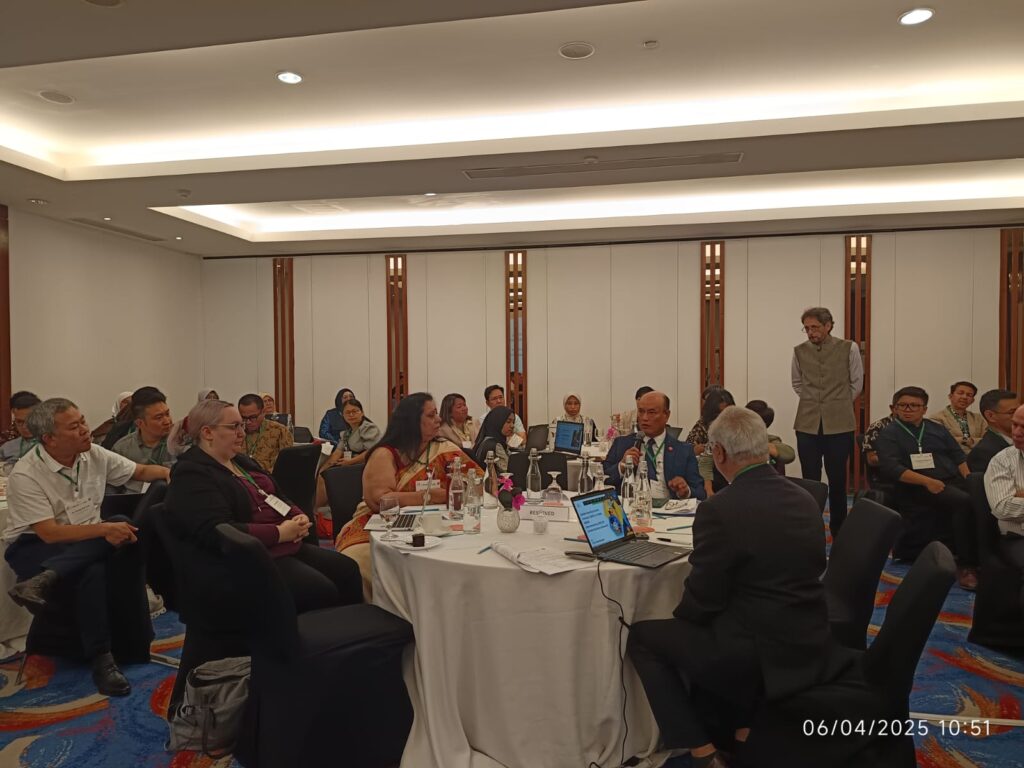
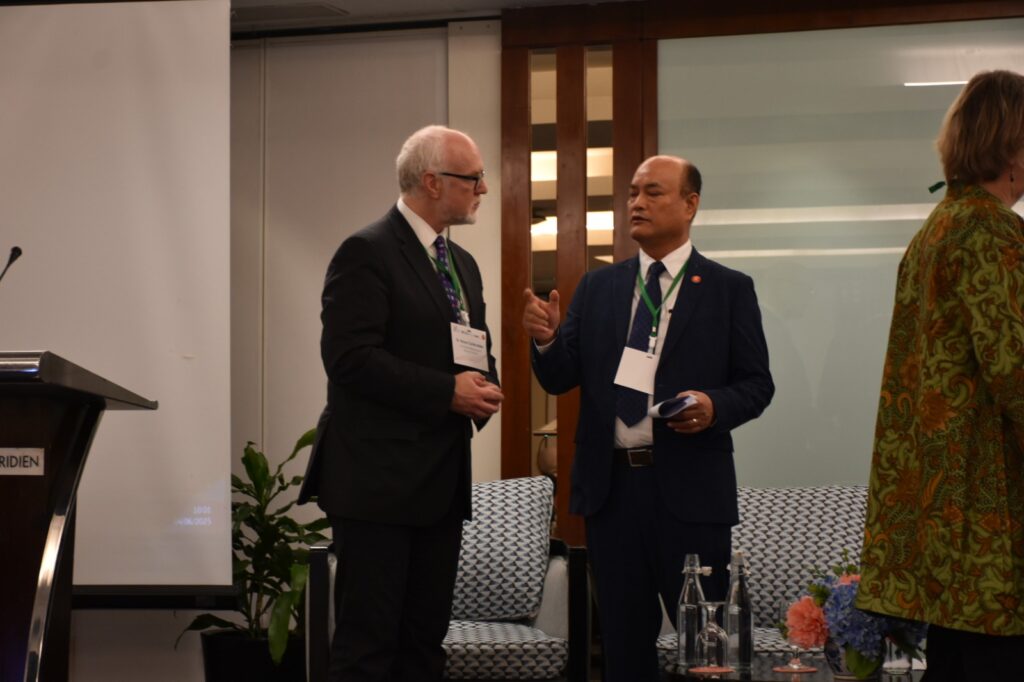
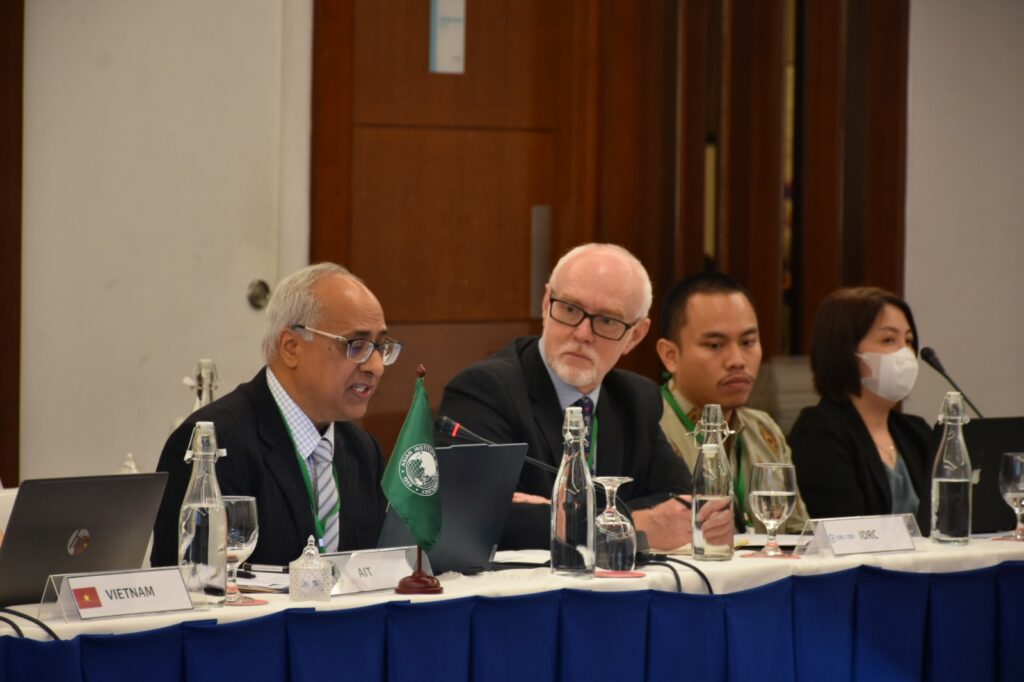
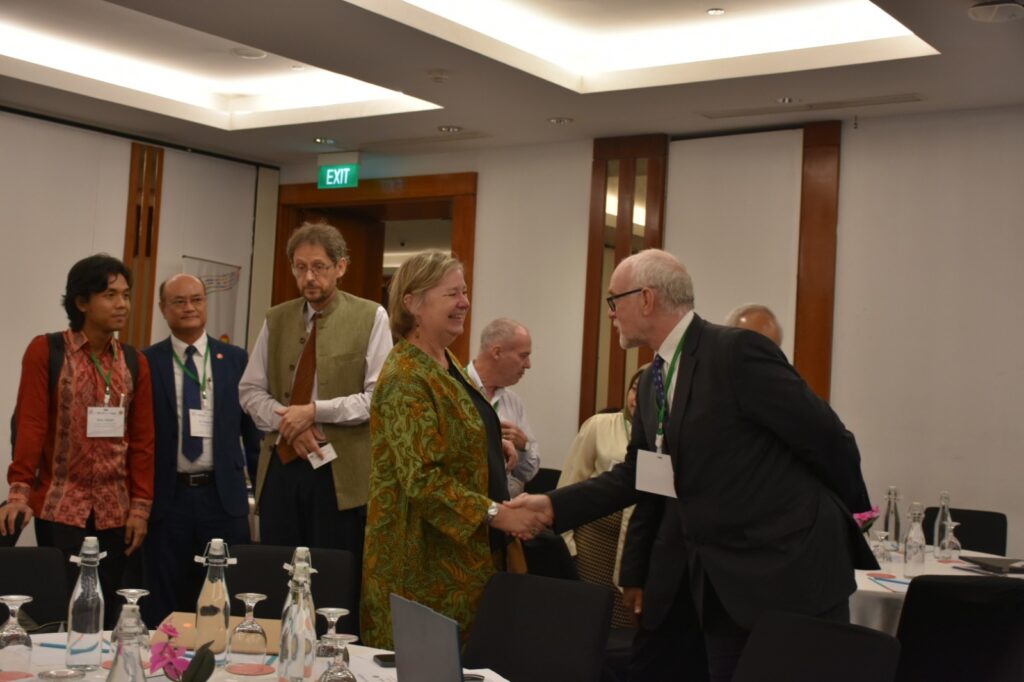
Looking ahead
The launch of CLARE-ASEAN brought together a passionate and growing adaptation community, united by a shared commitment to building a more resilient future for ASEAN cities. Stay tuned for more updates, including the announcement of the research projects selected through the open call for proposals.
Categories
Countries
CLARE Pillars
CLARE Themes
CLARE Topics
Published
CLARE Projects
CLARE Partners


